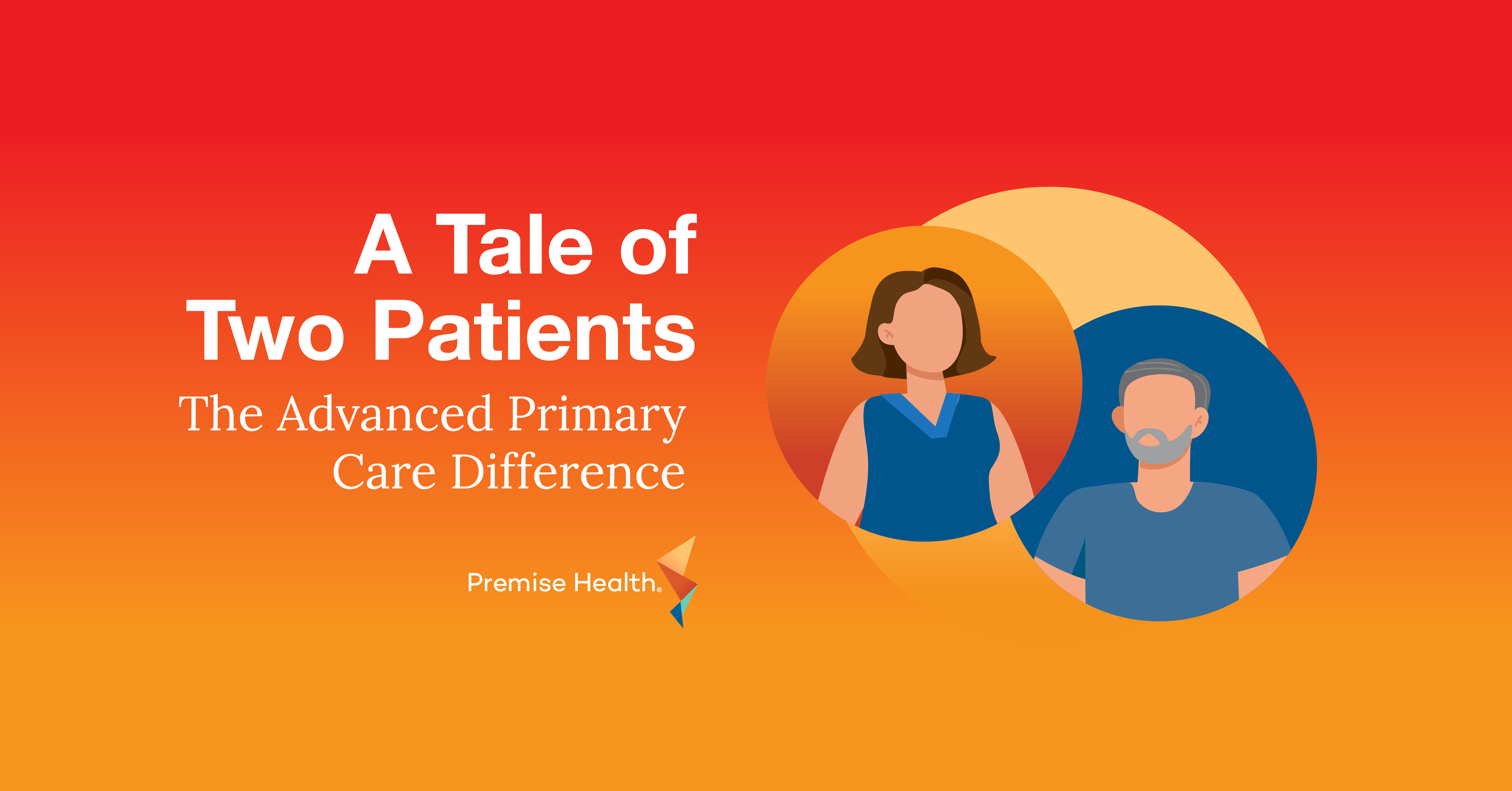Clinical Quality at Premise: A Q&A With Meghan McManama, DNP
Clinical quality is the foundation of exceptional healthcare. It’s essential in improving health outcomes, reducing costs, and enhancing the patient experience. Clinical leaders at Premise, like Meghan McManama, vice president of product, are crucial to helping our members get, stay, and be well.
Meghan received her Bachelor of Arts from Boston College, Master of Sciences in nursing from Columbia University, and a Doctor of Nursing Practice from Northeastern University. With nearly 20 years of experience in nursing, including 17 years as a board-certified nurse practitioner, Meghan helps lead our product team in its pursuit of commercial and clinical excellence. She is also a member of Nashville Health Care Council’s 2025 class of Council Fellows, a highly competitive executive program that allows her to join healthcare’s brightest minds to shape the future of the industry.
We sat down with Meghan to explore how Premise’s innovative, high-touch approach to healthcare product development is raising the bar on quality and driving better health — one member at a time.
You’ve had a dynamic career in healthcare. Can you share your career journey while at Premise and what your role looks like today?
I joined Premise in 2013. At the time, I had been practicing as a nurse practitioner in an accountable care organization. A former colleague reached out about a role as a health center manager and clinician at a new center, and I was excited for a new and different opportunity.
While in that role, I earned my doctorate and became interested in transformational leadership. After a few years I took a position in Premise’s medical operations department as a clinical operations director, where I learned more about the nuances of our different centers, how our clinical leadership teams support the onsite teams, and what our credentialing and clinical quality programming looks like. From there, I took on a senior role in clinical strategy and communications, overseeing the teams who lead each of our products, or specialties, in medical operations.
Last year, I stepped out of medical operations and into the growth and development side of the organization. I play a lead role in creating high-quality healthcare solutions that meet the unique needs of our clients’ populations and ensuring those solutions are scalable across the country, all built on the foundation of patient-centered advanced primary care. We focus on exceptional member experience, driving member impact, and delivering better health outcomes.
The most dynamic component of my role is supporting the leaders and teams behind each type of care. Premise is a large organization — no one person or team can drive success alone. A big part of my role is working with our teams to ensure our products are scaled, high quality, and meeting not just the market needs, but also those of our client and member populations. To do this, partnering with other departments within Premise is essential to empower our on-the-ground providers to focus on what matters most: caring for members. For example, we partner with IT teams to build tools for our care management and care navigation products. Our IT team members are responsible for customizing our Epic electronic health record so when providers make referrals, they are sent directly to our care navigators. This efficient process allows care navigators to quickly schedule appointments for members with specialists who are known for providing high-quality and cost-effective care.
You mentioned delivering better health outcomes, which requires high-quality care. What does clinical quality mean to you, and how do you deliver it in your role?
At Premise, clinical quality means more than delivering services — it means training, tracking, and demonstrating our impact. We can show that we do what we say we do, and we do it well. Our advanced primary care model gives care teams more time with patients and brings together clinicians from diverse backgrounds to meet members’ needs. Not only that, but we actually follow members throughout the healthcare ecosystem – both in the Premise environment and when we refer them into the community. The icing on the cake for clinical quality is when we get the member through our system safely, in a way where they are navigated along their care journey. It’s warm handoffs. We hold ourselves accountable for that.
We see the impact of our clinical quality in our outcomes – whether that’s in our HEDIS metrics or in reduced ER visits and hospitalizations. There’s also an impact on the cost side. With our claims-based analysis conducted by Premise using a methodology validated by Milliman, we see individuals who are engaged and attributed to a Premise primary care provider have fewer unnecessary ER trips and inpatient hospitalizations than their peers with PCPs in the community. The organizations we work with see not only a healthier workforce and fewer work-related injuries and absences, but they also see the impact on their bottom line. They’re getting that return on investment with a healthier population and cost savings for those members who are utilizing our services. That’s what I think of in terms of quality – that whole picture, whole-person care. It’s why I oversee our advanced primary care model – because I believe in it so much.
How do you stay up to date on clinical innovation and bring your learnings to Premise?
We hear things from the field, go to national conferences for different specialties, engage in discussion boards, and read academic journals. We also gather insights from our medical directors and onsite teams about emerging needs and local innovations. We partner closely with our medical operations leaders and them, “What are you being asked for? What are you seeing in your local community practices that we don’t offer?” Then we talk about why we don’t offer it and build out the business case if we should.
We’re also looking at other organizations – how are they innovating? And how can we improve? Other times the drive for innovation comes from the employers and unions we work with who point to something in their claims and ask us for solutions. If we don’t have the right solution in place, we develop one.
The industry is constantly evolving. How do you balance the need for rapid innovation with maintaining clinical excellence?
As an organization gets larger, you can no longer rely on every single person on the team to be a Jack or Jane of all trades. In small organizations, people wear many hats. But as Premise grows, we’ve built dedicated roles to bring deep expertise to the table. Each expert has their own swim lane and niche, and then we all come together to take care of the member.
Premise has been around since 1964, but we are not a static organization. We don’t just say, “This is the way we’ve always done it.” We’re constantly in this retrospective and forward-looking process of asking, “What do we offer? Is it working and meeting the needs of our members and clients? If we were going to make modifications to a type of care, what should we do, and when should we do it?” We’re still nimble and can get things implemented relatively quickly, but we have the right folks leaning in and approving what we’re building at different stages of the game so we can ensure it’s still a high-quality service.
What’s an innovation you’re particularly excited about right now — within Premise or the broader healthcare space?
I’m really excited by how employers and unions increasingly recognize the value of our advanced primary care model. What has been to my surprise and delight is that interest has resulted in the conversations we are now having about our primary care-centered health plan. Through partnerships like the one with Centivo, we’re helping organizations reduce not just their costs, but the out-of-pocket costs for members and their families. It’s incredible to see that the care we deliver can help someone live a healthier life and also afford groceries, a car payment, or even a family vacation.
We’ve long known that people who utilize primary care have better health outcomes and see lower costs. And now the proof is in the plan model. We have really innovative clients that have partnered with us for the January 2026 benefits cycle. We’ve always influenced benefit design, like copays, but now we’re influencing premiums. It’s a bold step toward rewarding the right kind of care, and I’m thrilled to be part of it.
Our products are at the core of what we do at Premise, and with leaders like Meghan, they’re constantly growing and evolving to meet the needs of those we serve. If you’re interested in exploring more about our product offerings, contact us today.
Next on industry insights.

Driving Business Success by Investing in Employee Physical and Mental Health
Read the Blog
A Tale of Two Patients: The Advanced Primary Care Difference
Read the Blog